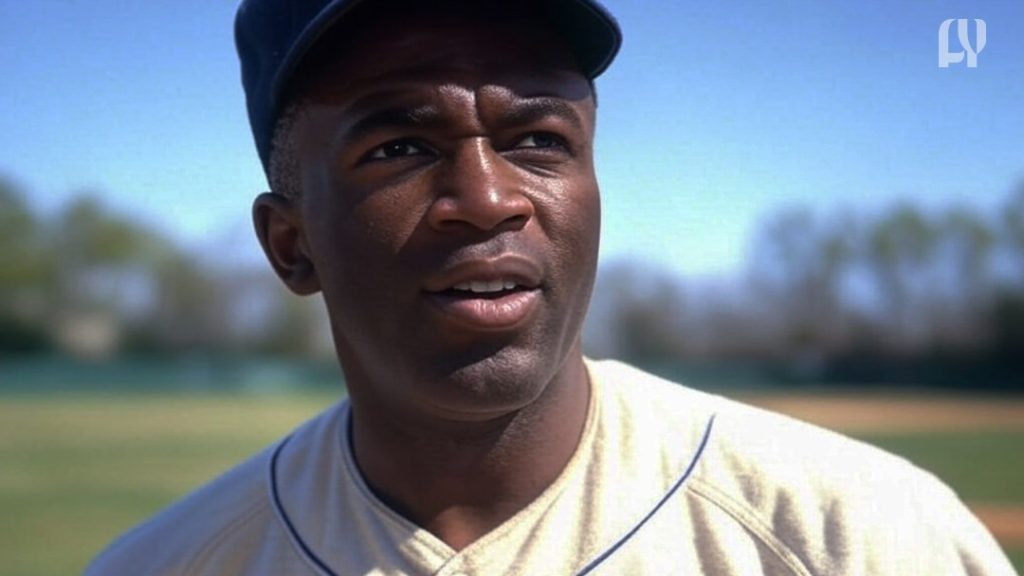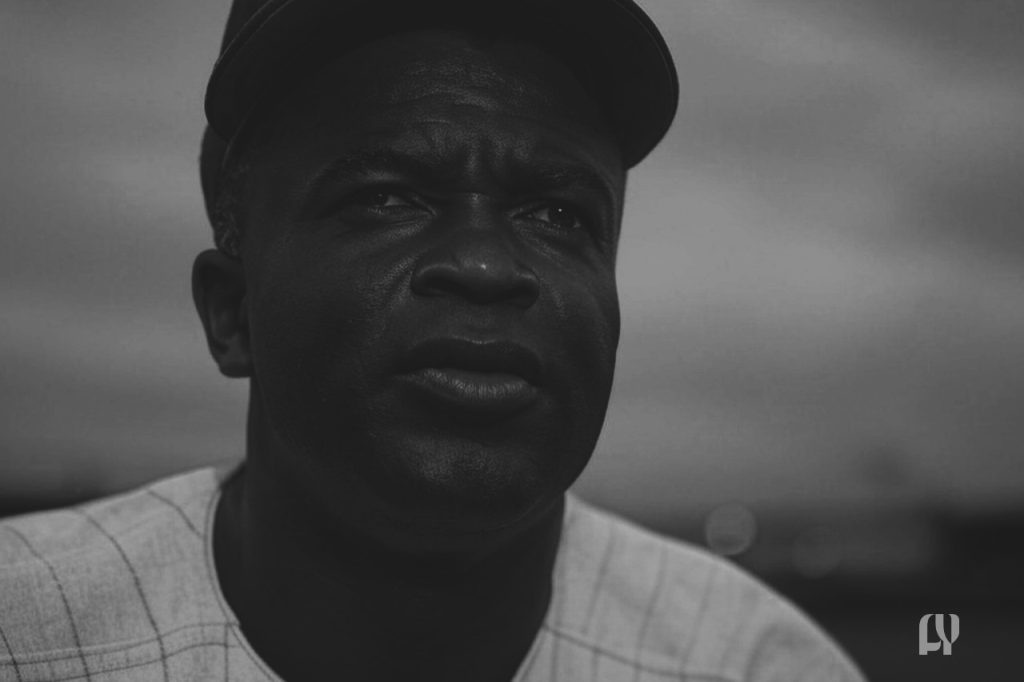Jackie Robinson: A Legacy Beyond the Baseball Diamond
Introduction: The Man Who Changed the Game
Jackie Robinson stepped onto Ebbets Field on 15 April 1947. He wore the iconic number 42 for the Brooklyn Dodgers. He did more than play baseball. He shattered a century-old colour barrier in America’s favourite pastime. Robinson became the first African American to compete in Major League Baseball (MLB) in the modern era.
- Breaking Barriers: From Cairo, Georgia, to the Big Leagues
- A Champion for Civil Rights: The Activist After Baseball
- Personal Struggles and Triumphs: Family, Loss, and Health
- The Final Inning: Robinson’s Death and Memorials
- The Robinson Family: Carrying the Torch
- Jackie Robinson in Popular Culture
- Common Questions About a Legend
But Robinson’s legacy stretches far beyond the diamond. His life was a blueprint for courage, activism, and unyielding dignity in the face of racism. This legacy continues to inspire generations worldwide. It is especially inspiring here in South Africa, where the fight for equality remains deeply personal.
Breaking Barriers: From Cairo, Georgia, to the Big Leagues
Jack Roosevelt Robinson was born on 31 January 1919, in Cairo, Georgia. He grew up in Pasadena, California. His mother moved the family there after his father abandoned them. From a young age, Robinson excelled in multiple sports. He starred in football, basketball, track, and baseball at Pasadena Junior College. Later, he continued his sports career at UCLA. His athletic prowess was undeniable, but his path to greatness was never straightforward.
A life is not important except in the impact it has on other lives.
After serving in the U.S. Army during World War II—he faced a court-martial for refusing to move to the back of a segregated bus. Robinson’s resilience caught the eye of Branch Rickey, the Dodgers’ general manager. Rickey sought a player with “the guts not to fight back” against the inevitable racism. Robinson agreed, signing with the Dodgers’ minor league team in 1946 before his historic MLB debut a year later.

The abuse was relentless. Fans hurled slurs. Opponents spat on him. Even teammates circulated a petition to keep him off the field. But Robinson’s talent spoke louder. He batted .297 in his rookie season, stole 29 bases, and earned the inaugural Rookie of the Year award. By 1949, he claimed the National League MVP title, silencing critics with a .342 average and 37 steals. His success forced America to confront its prejudices—one swing at a time.
A Champion for Civil Rights: The Activist After Baseball
Robinson’s retirement from baseball in 1957 marked the start of a new inning: his fight for racial justice. He wrote columns for the New York Post and Chicago Defender. He used his platform to critique segregation. He also addressed voting inequality and economic disparity. He joined the NAACP’s board, fundraised for Martin Luther King Jr.’s Southern Christian Leadership Conference (SCLC), and co-founded Harlem’s Freedom National Bank—a Black-owned institution to empower underserved communities.
His friendship with Dr. King was pivotal. The two shared a stage at the 1958 Youth March for Integrated Schools and the 1963 March on Washington. King once praised Robinson as “a sit-inner before sit-ins, a freedom rider before freedom rides.” Yet their bond wasn’t without tension. Robinson was a staunch Republican. He publicly disagreed with King’s opposition to the Vietnam War. In 1967, he wrote, “I love this imperfect country.” Still, their mutual respect endured. “You stay the finest leader our people have,” Robinson assured King.
Personal Struggles and Triumphs: Family, Loss, and Health
Behind the hero was a man grappling with private battles. Robinson’s eldest son, Jackie Jr., struggled with addiction after serving in Vietnam, tragically dying in a car crash in 1971 at age 24. The loss devastated Robinson, whose own health was declining due to diabetes and heart disease.
Change does not roll in on the wheels of inevitability; it comes through continuous struggle.
Yet his marriage to Rachel Isum, a nurse and activist he wed in 1946, became his anchor. Rachel managed his post-baseball career while raising their three children. Today, she remains the steward of his legacy. She founded the Jackie Robinson Foundation in 1973 to give scholarships and mentorship to young scholars. “Jackie believed a life only matters through its impact on others,” Rachel once said. “That’s the legacy we protect.”
The Final Inning: Robinson’s Death and Memorials
On 24 October 1972, Jackie Robinson died of a heart attack at 53. His funeral, attended by thousands, featured eulogies from Jesse Jackson and Dodger legend Don Newcombe. But his story didn’t end there.
In 1997, MLB retired his number 42 across all teams—a first in sports history. Every 15 April, players don the number for “Jackie Robinson Day,” a tribute to his pioneering spirit. Museums, from New York’s Jackie Robinson Museum to Atlanta’s MLB Hall of Fame, preserve his journey. Even in South Africa, his legacy resonates. Local baseball leagues and anti-apartheid activists have drawn parallels between Robinson’s struggles and our own fight for equality.
The Robinson Family: Carrying the Torch
Rachel Robinson, now 101, has spent five decades amplifying her husband’s mission. Their daughter, Sharon, became a nurse and author, penning books about her father’s values. Youngest son David runs a coffee farm in Tanzania, honouring Jackie’s belief in economic justice. Meanwhile, the Jackie Robinson Foundation has awarded over $100 million in scholarships, ensuring education remains a bridge to opportunity.
Jackie Robinson in Popular Culture
Robinson’s life has inspired films like 42 (2013) and documentaries by Ken Burns. His quote is “A life is not important except in the impact it has on other lives.” This quote adorns school murals and social justice campaigns. In Mzansi, his story is taught in classrooms as a lesson in courage and unity.
Common Questions About a Legend
How did Jackie Robinson die?
Jackie Robinson died of a heart attack on 24 October 1972, at the age of 53.
Is the number 42 retired in all sports?
Yes, Major League Baseball retired the number 42 across all teams in 1997 to honour Robinson’s legacy.
Was Jackie Robinson born in Africa?
No, Jackie Robinson was born in Cairo, Georgia, USA, on 31 January 1919.
What are Jackie Robinson’s most notable accomplishments?
Robinson broke MLB’s colour barrier in 1947. He won the Rookie of the Year and MVP awards. He became a civil rights icon.
How old was Jackie Robinson when he started playing in the MLB?
Jackie Robinson was 28 years old when he made his MLB debut on 15 April 1947.

The Eternal Impact of Number 42
Seventy-five years after Robinson’s debut, his legacy is a living force. From ballparks to boardrooms, his fight for equity endures. In a world still grappling with racism, his message remains clear. He said: “Change does not roll in on the wheels of inevitability; it comes through continuous struggle.” For South Africans, his story mirrors our own. It is proof that one person’s courage can tilt the arc of history toward justice.
Jackie Robinson wasn’t just a sportsman. He was a freedom fighter. And his legacy? Forever safe at home.


